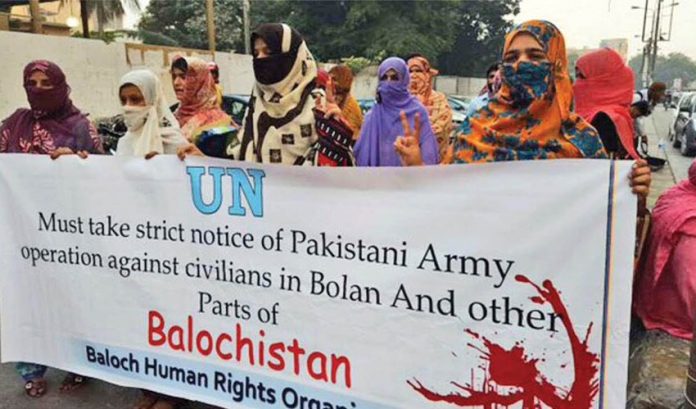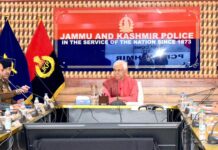Shaal (Pakistan-occupied Balochistan): At least 25 innocent Baloch people became victims of the cruel practice of ‘Enforced Disappearances’ in Balochistan in the month of May, joining lakhs of other such people as the repressive Pakistani military continued its oppression in the occupied territory.
The figures have been revealed in a report by Paank, the Human Rights Department of the Baloch National Movement (BNM), which documents the criminal practice of ‘Enforced Disappearances’ wherein an individual is detained illegally without any trace of his whereabouts or fate.
Most of the victims of this cruel practice are never found again and even those of the few who may be released are found either as dead or in a totally unfit mental and physical state.
Over the last several years, lakhs of Baloch people, including women and children, have become victims of this inhuman practice by the Pakistani military and police forces.
“The reasons behind these disappearances and the charges against the victims have never been explained,” says BNM spokesman Qazi Dad Mohammad Rehan.
“This continuous practice of enforced disappearances has severely damaged the physical and mental health of the Baloch people,” he said in a statement.
The Paank report states that the Baloch people are subjected to unimaginable suffering, with women being harassed and forced into working as collaborators.
The fear prevents individuals from speaking out against these injustices, leading to the people’s silent endurance, it said.
The report cited the case of a woman, Banuk Najma Baloch, as an example of the devastating consequences of human rights abuses.
An educated young woman who provided free education to children in her community, Banuk Najma was forced to commit suicide because of relentless harassment she faced from the Pakistani army and its agents, the report says.
Paank investigated the suicide case and found voice notes that prove involvement of Noorbaksh, son of a Pakistan Army agent Abdula Khaliq, in abetment of the extreme step by Banuk Najma, it said.
Paank called on the international community to take urgent action and intervene in the humanitarian crisis in Balochistan.
Paank urged international organizations and human rights institutions to hold Pakistan accountable for these crimes and work towards ending these abuses.
“Pakistan Army’s actions in Balochistan have resulted in grave human rights violations, including the restriction of movement for residents without the army’s permission and daily military operations,” it said.
“Pakistan Army has established armed squads, known as death squads, in various areas that recruit criminals and engage in activities such as harassment, theft, and even killing on behalf of the army,” Paank said.
The PaanK Department wants international Human Rights monitoring teams to be deployed to investigate and document the situation on the ground in Balochistan.
Highlighting the severity of the situation in Pakistan-occupied Balochistan, Paank “urges the international community to work collectively to ensure that human rights are respected, protected, and fulfilled.”
It underlined the importance of upholding human rights principles for all and call for meaningful change through collective efforts and unwavering commitment.








